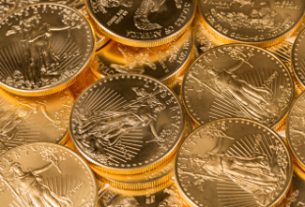Every day brings more and more news that market participants are warning of the risk of a severe recession. Experienced traders from both stock and bond markets are positioning themselves to protect themselves against the downturn, which they universally agree will be catastrophic. The only question now is, with stock markets still elevated, will mainstream investors heed their warnings and listen?
One of the more recent voices warning of a market crash is prominent bond investor Jeffrey Gundlach, who manages over $150 billion in investor assets. Gundlach warned that economic performance this year is likely to lull investors, as it was almost impossible for them to lose money this year. But this year’s great performance is likely to change completely come next year.
The 60-year-old Gundlach warned that the next recession is likely to decimate investors, and that stock markets would likely not return to their pre-recession highs at any point during the rest of his investing career. That’s a bearish outlook, but one that more and more professional investors are sharing.
There’s a growing consensus that the next stock market crash could see stock markets losing at least half of their value. That wouldn’t be unprecedented, as stocks lost nearly 55% of their value during the financial crisis from 2007 to 2009. And in a worst-case scenario it wouldn’t be out of the question to see a drop like during the Great Depression, when the Dow Jones lost over 80% of its value from 1929 to 1932.
By now it’s a question only of when, not if, stock markets will drop. It’s only natural for investors to want to wring every last cent out of the bull market in stocks, but keeping your money in stocks too long risks huge losses when stock markets finally turn south.
That’s why more and more investors are beginning to think about protecting their investments and hedging their risk. With both bond and stock markets set for corrections in the not-too-distant future, the options for hedging and for portfolio diversification in financial markets are limited. And that’s why investors are once again turning to gold.
Gold has helped investors protect their assets for centuries, maintaining its value through times of financial turmoil and economic uncertainty. During the financial crisis, gold gained value while stock markets tumbled, helping protect the wealth of investors who saw the writing on the wall and invested in gold before the crisis became acute. Now investors who lost much of their wealth in 2008 are vowing not to make the same mistake twice, and are turning to gold to protect their retirement savings.
But in order to benefit from gold’s protective abilities, investors have to invest in gold before the crisis hits, otherwise they risk losing thousands or tens of thousands of dollars from their investment portfolios. If you haven’t made the move yet to invest in gold, shouldn’t you start thinking about doing so before the next crisis hits? Don’t let yourself get caught flat-footed when markets crash – protect your assets with gold today.
This article was originally posted on Goldco.




